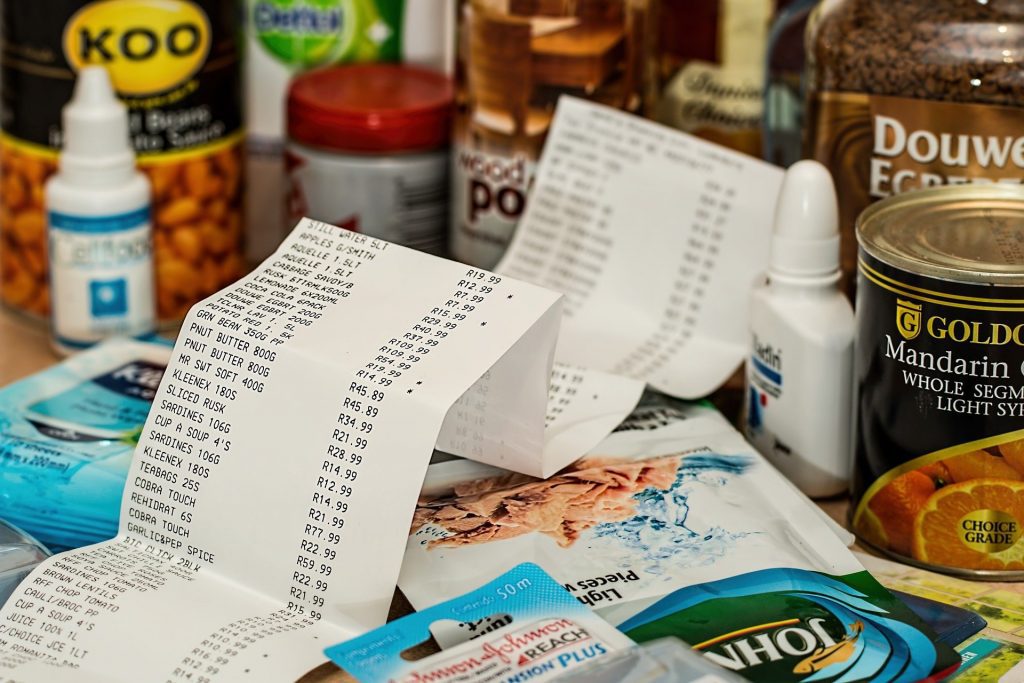

For most people, food is the third highest expenditure in the family budget (after housing and transportation) and food costs are going up. Way, way up. In the last year — from September 2020 to September 2021 — the cost of food rose 31%. That’s the steepest increase the U.S. has seen since government started tracking food prices.
Food inflation is outpacing almost every other segment of consumer goods and is about ten times more than the increase in wages over the same period. That means that it’s getting harder and harder to keep the food budget under control. Chances are good that you need to spend less at the grocery store if you are going to make ends meet.
In the next few columns, we'll go over some practices and tips that will help you manage the cost of feeding your family.
Tip #1: Start with a super pantry
I've written before on how a super pantry can help you keep control over your food budget. [mydakotan.com/2022/02/food-storage/] A super pantry is a part of your pantry or extra shelves you have in a storage closet where you put a surplus supply of food.
Here's the rationale: Food prices are extremely volatile, constantly changing with every whim of the market. It's one reason the Consumer Price Index (CPI) subtracts food from its formula when calculating inflation. But you will always need food, so buying food when prices are low is one of the safest investments you can make.
Whenever an item goes on sale that you regularly use, buy extras, write the date of purchase on the package and put them in your super pantry.
Now don't go crazy. Most food from the store has a limited shelf life, so don't buy more than can be used in 3-4 months. Always put the newest food in the back and bring older food to the front. Periodically check your pantry to see which foods are about to expire and need to be used right away.
Over time, your super pantry should have enough to feed your family for 8-12 weeks. It means you will never have to buy anything that's not on sale, so you will always be saving money.

Tip #2: Shop with a list
This is one of the first things you learned in your high school Consumer Economics class. Make a shopping list and stick to it. That means you’ll need to start with a menu. Make up a menu of what meals you will prepare for the week (or month). Using the menu, write up a list of the foods that you will need for those meals. This is the start of your shopping list.
Now go look in your pantry to see how many of those foods you already have on hand and scratch those items off the list. Also, check your pantry inventory. Make a note of items that you are running low on. You’ll want to replenish those items as soon as they go on sale.
Next look at the sales flier from the grocery store. If there are items on sale that you can stock up on, add those to the list. Your final shopping list will consist of ingredients you need for your menu plus anything that’s on sale that you need to build up your pantry.
If at all possible, you should shop alone. It’s almost impossible to shop by committee and still stay on budget. While your spouse may help keep you on target, it’s an almost certainty that children will want things that are not on your list. Leave the little ones at home and stay focused on the budget.

Tip #3: Easy does it
While you want to stock up on canned goods and other non-perishables when they are on sale, you need to go easy on the perishables. Buy just enough perishables for one week. There are two reasons for this:
First, these foods have a short shelf life, a week or two at best for most fruits and vegetables. There’s no reason to buy more perishables than you can eat in a week.
Second: Overstocking your fridge often leads to waste. A full fridge gives the illusion of abundance and you may not pay attention to food until it’s spoiled. Food waste is death to your budget, so keep the stock in your fridge to a minimum. (We'll talk more on food waste next week.)
The overarching theme here is “mindfulness.” Be mindful of what you have in your pantry and what needs to be used or replenished. Be mindful of what prices are and be ready to buy extras when staples go on sale. Be mindful of how well you are staying within your budget.
Food is such a personal, individualized thing that it’s hard to give advice that applies to everyone about how to save money on food. You may not have the space for a super pantry or may not have the temperament to make a shopping list and stick to it. That's fine. Just pick one or two things on this list and see what you can implement. Every little thing you do will help relieve the stress of rising prices. I'll have more tips in the weeks to come.
Six reasons you should have a super pantry: https://mydakotan.com/2022/02/food-storage/
